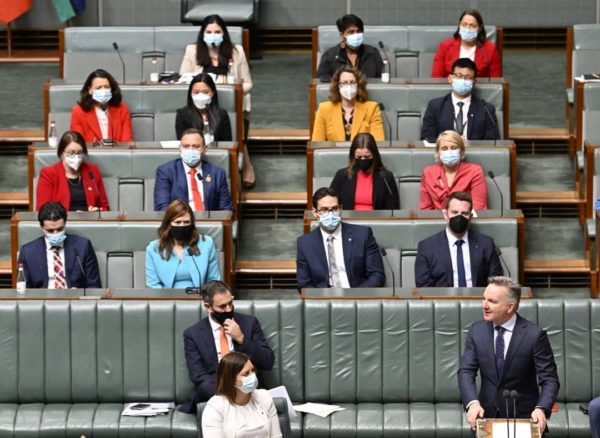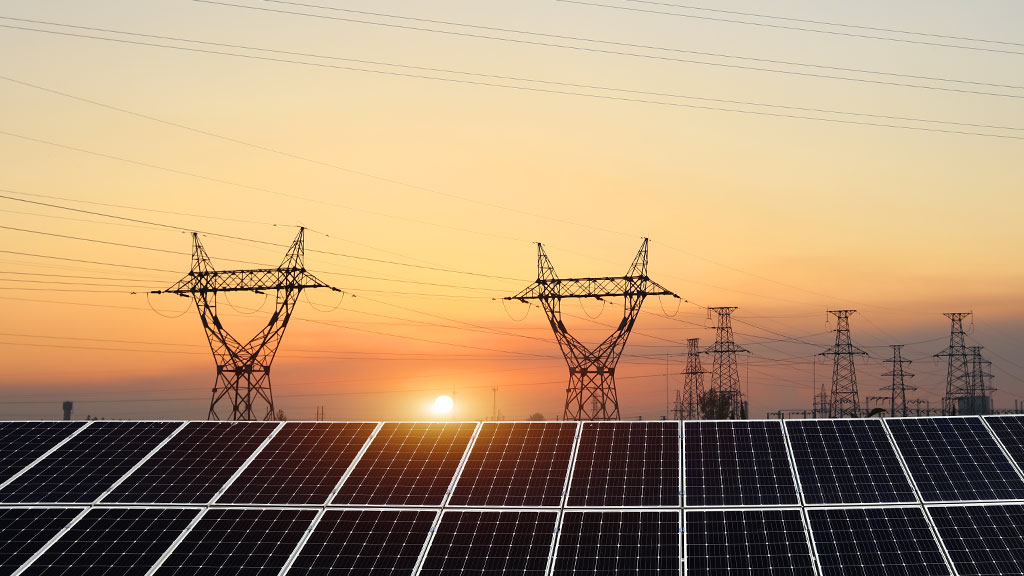The Albanese Government has formalised Australia’s renewed climate goal with the introduction of a new bill into parliament that it claims will demonstrate to renewable energy investors and developers that “Australia is open for business and raring to go”.
The Climate Change Bill 2022, introduced in the lower house by Energy Minister Chris Bowen on Wednesday, would enshrine Labor’s commitment to a 43% reduction in emissions from 2005 levels by 2030 as well as its commitment to reaching net zero by 2050.
Bowen said the bill delivers “the strongest possible signal” to industry and investors about the country’s collective commitment to decarbonising the economy and becoming a renewable energy superpower.
“This legislation is important not so much because of what it obliges governments and ministers to do, although there are significant elements of that in the bill, but more because of the message of stable, clear, coherent and necessary policy it sends to the private sector, to private investors, when it comes to investing in renewable energy,” he said.
“It sends a message that Australia now has a government and a parliament that wants Australia to be a renewable energy powerhouse.”
As well as enshrining Labor’s emissions reduction targets, the bill hands power to the Climate Change Authority to monitor Australia’s progress against those goals and inform the setting of future targets, including Australia’s next target under the Paris Agreement, for 2035. It would also require the minister to provide regular updates on how the government is meeting its targets. The legislation would also embed the targets in the objectives and functions of a range of government bodies including the Clean Energy Finance Corporation (CEFC), the Australian Renewable Energy Agency (ARENA) and Infrastructure Australia.

Image: Supplied
Investor Group on Climate Change (IGCC) policy director Erwin Jackson said the bill could help unlock hundreds of billions of dollars’ worth of investment in climate solutions across the economy.
“The proposed bill includes many of the elements that will support the efficient allocation of capital to Australia,” he said. “Investors seek best practice legislative frameworks that include legislated targets, and independent advice on the policies needed to ensure an equitable transition to net zero.
“These measures will reduce the risk of continuing the chaotic climate policy making which has increased investment risks and costs in Australia.”
The IGCC said coherent policies that deliver on stronger emissions targets will provide the opportunity to unlock an estimated $131 billion in new investment this decade.
Economist Nicki Hutley, a member of the Climate Council, backed the new legislation, saying clean energy represents an enormous economic opportunity for Australia, supporting job creation, growing businesses and driving a sustainable energy future.
“The economic opportunities for a country like Australia are boundless,” she said. “Clean energy exports could be worth $333 billion each year, that’s almost triple the value of Australia’s existing fossil fuel exports.”
While negotiations are continuing to ensure the bill can pass through the upper house, Australian Industry Group chief executive Innes Willox said in its current form the legislation represents a “very big improvement on the status quo” – and the broader the support for the bill, the stronger the basis for investment will be.
“Industry weighing up big decisions about where, when and how to invest need the clearest steer they can get about national goals and public policy,” he said. “Too often we’ve seen climate policy flip back and forth with political winds; governments pursue contradictory goals via uncoordinated action; and industry and other stakeholders shut out from having a clear say on policy and progress.
“The process set out in the bills would greatly improve that, with clear goals for all relevant arms of government and the public to refer to, strong transparency and independent advice drawing on public input to shape the future of targets.”
The climate change bill is set to reach the Senate by September. With the Coalition expected to vote against the draft laws, Labor will need the support of the Greens, which hold 12 seats in the Senate, plus one crossbencher for the legislation to pass.
Bowen said on Wednesday that negotiations on the climate bill are ongoing, but he remained confident the legislation would pass through the upper house.
“The world’s climate emergency is Australia’s opportunity,” Bowen said. “We have the resources, the capability and the know-how to become a renewable energy superpower, not just in one part of Australia, but across multiple sectors of our economy. In clean energy, in battery manufacturing, in commodities, and in value-adding such commodities as aluminium, lithium, copper, cobalt and nickel.
“This bill may be simple in what it lays out, but it’s significant in what it will achieve.”
This content is protected by copyright and may not be reused. If you want to cooperate with us and would like to reuse some of our content, please contact: editors@pv-magazine.com.









By submitting this form you agree to pv magazine using your data for the purposes of publishing your comment.
Your personal data will only be disclosed or otherwise transmitted to third parties for the purposes of spam filtering or if this is necessary for technical maintenance of the website. Any other transfer to third parties will not take place unless this is justified on the basis of applicable data protection regulations or if pv magazine is legally obliged to do so.
You may revoke this consent at any time with effect for the future, in which case your personal data will be deleted immediately. Otherwise, your data will be deleted if pv magazine has processed your request or the purpose of data storage is fulfilled.
Further information on data privacy can be found in our Data Protection Policy.